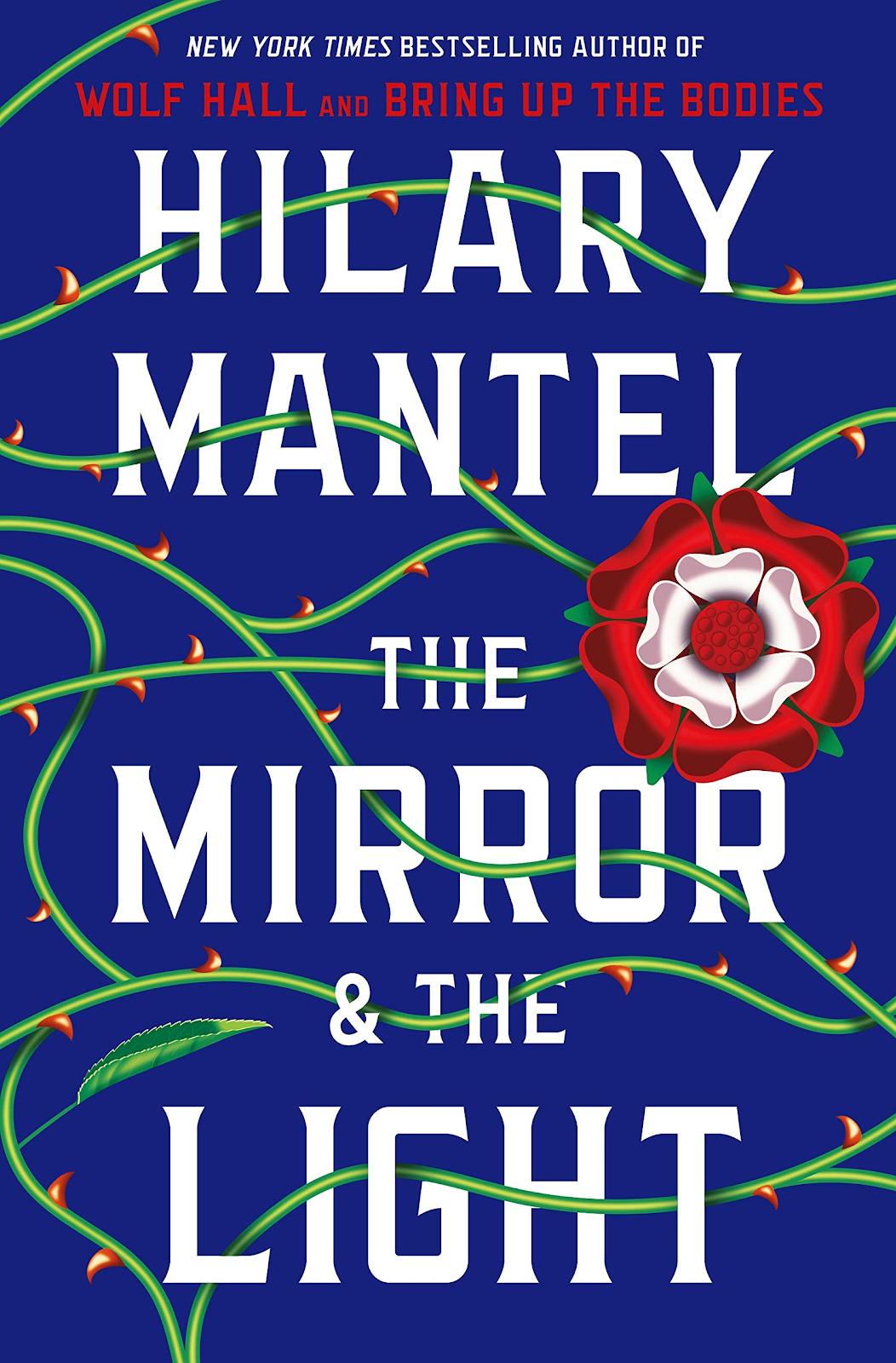The Mirror & the Light
Summary (from the publisher): “If you cannot speak truth at a beheading, when can you speak it?”
England, May 1536. Anne Boleyn is dead, decapitated in the space of a heartbeat by a hired French executioner. As her remains are bundled into oblivion, Thomas Cromwell breakfasts with the victors. The blacksmith’s son from Putney emerges from the spring’s bloodbath to continue his climb to power and wealth, while his formidable master, Henry VIII, settles to short-lived happiness with his third queen before Jane dies giving birth to the male heir he most craves.
Cromwell is a man with only his wits to rely on; he has no great family to back him, no private army. Despite rebellion at home, traitors plotting abroad and the threat of invasion testing Henry’s regime to the breaking point, Cromwell’s robust imagination sees a new country in the mirror of the future. But can a nation, or a person, shed the past like a skin? Do the dead continually unbury themselves? What will you do, the Spanish ambassador asks Cromwell, when the king turns on you, as sooner or later he turns on everyone close to him?
With The Mirror & the Light, Hilary Mantel brings to a triumphant close the trilogy she began with Wolf Hall and Bring Up the Bodies. She traces the final years of Thomas Cromwell, the boy from nowhere who climbs to the heights of power, offering a defining portrait of predator and prey, of a ferocious contest between present and past, between royal will and a common man’s vision: of a modern nation making itself through conflict, passion, and courage.
Review: In this third and final installment of the Thomas Cromwell trilogy by Hilary Mantel, we see the final ascent and then utter demise of Thomas Cromwell, the boy from humble origins who served the fickle King Henry VIII. The novel opens in 1536. Anne Boleyn has been beheaded on the orders of her husband the King, orders that were carried out by his ever loyal servant Cromwell. With only his wits to protect him, Cromwell must stay every wary in a court that is growing increasingly angry by the wealth and titles heaped upon him and a master grown ever more hard to please as he ages.
Mantel's narration is as distinctive as ever in this final book told from Cromwell's perspective. The narration slips between memory, experience, and imagined future events, so much is required from the reader to divine the true meaning of Cromwell's near stream of consciousness third person narration. The whole of the book is Cromwell playing an intricate game of chess that is trying to keep his king happy, anticipate events on the international stage, and manage court intrigues. In Hilary Mantel's depiction, Cromwell allows the world to believe he is a cold, power and wealth hungry man capable of great evils but in reality he is mostly in it for the love of the game and only allows people to believe he doesn't care for the fates of others. Despite his great wealth, he rarely seems to find any time to enjoy it. And he knows that fear is a powerful tool so it is useful to allow people to assume the worst of him. Until his reputation is used against him to bring him down.
After three novels, I have grown fond of Cromwell. At heart he is still the sad, abused little son of a cruel butcher who becomes a man with a soft spot for weak women and is exceptionally gifted and bright. It was hard to read of his downfall, although with a historical novel, we all see it coming. Mantel has cast a historically maligned character in a new light and breathed new life into the old Henry VIII story in a glorious way in this trilogy.
Stars: 4
Related Titles:



Comments
Post a Comment